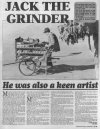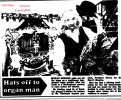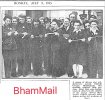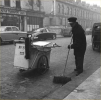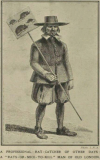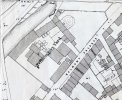I Am Nico
master brummie
I would think with modern machines now, one of my birth mother's early jobs would be defunct. She worked at Typhoo and she operated a lever that guided the tea in to packets as tea was bought in, those days. She was in the clouds and she was not operating the leaver, the packets went one way and the tea the other and she was sacked.
My mum's first job was in a galvanised bucket factory. I wonder if they are still made. Her first weekend job was cutting weighing and patting butter, and wrapping it. In Miss Cook's shop. Near Stourbridge.
I know we have pest controllers but they used to be called rat catchers. My mate was an apprentice compositor. The printers used to get visited by the rat woman. They used to sing Rat woman to the Batman theme.One way to get rid of chilblains, let rats nibble them. But we are getting off subject.

